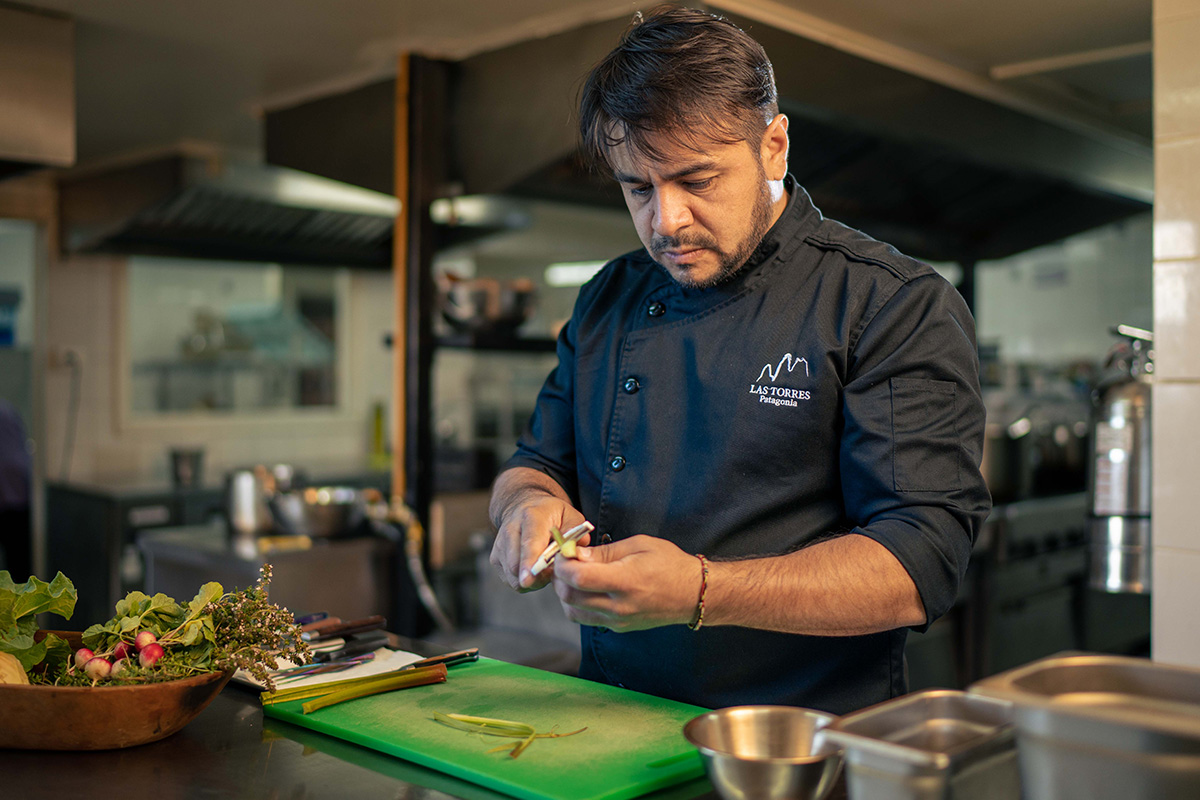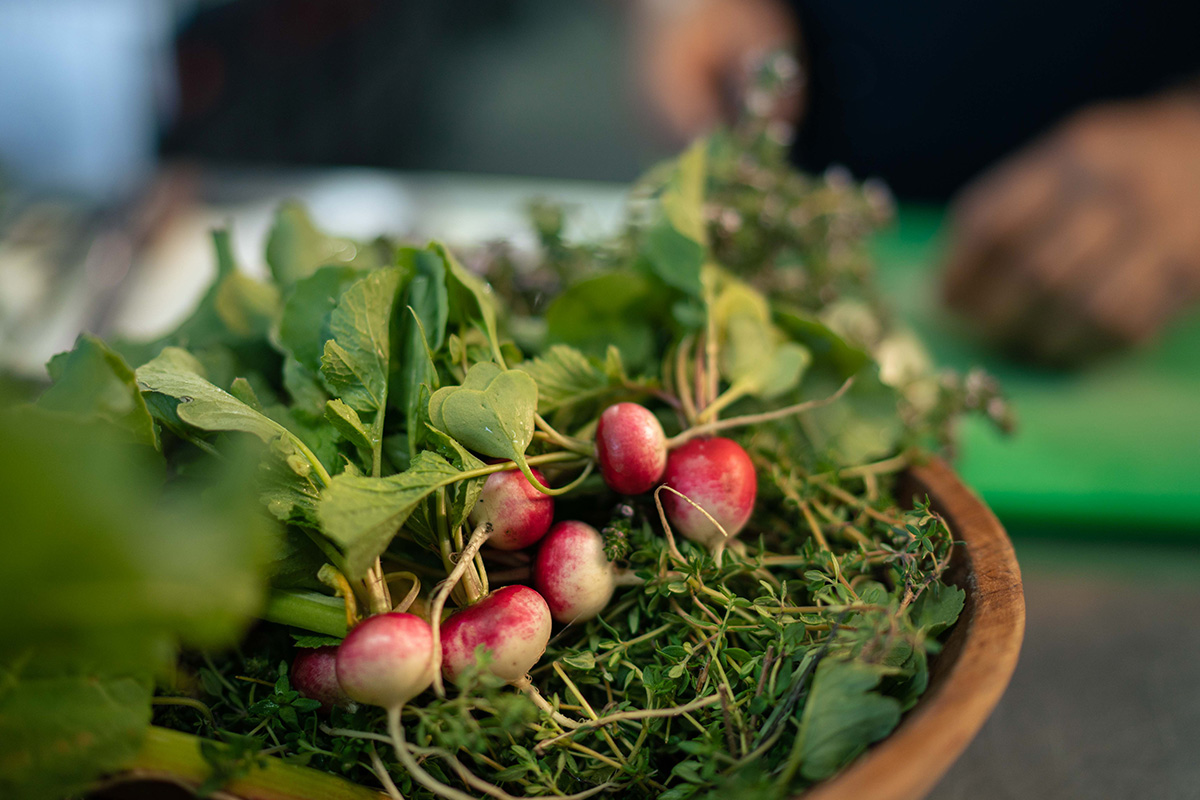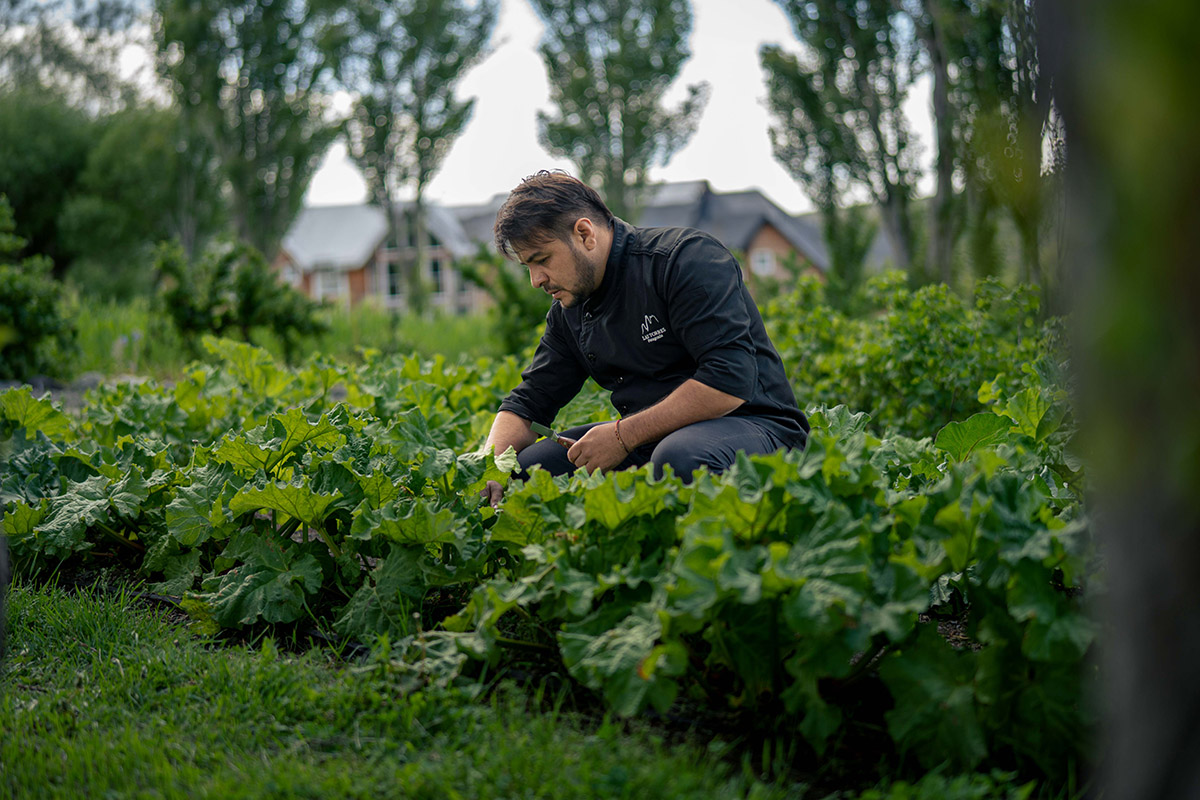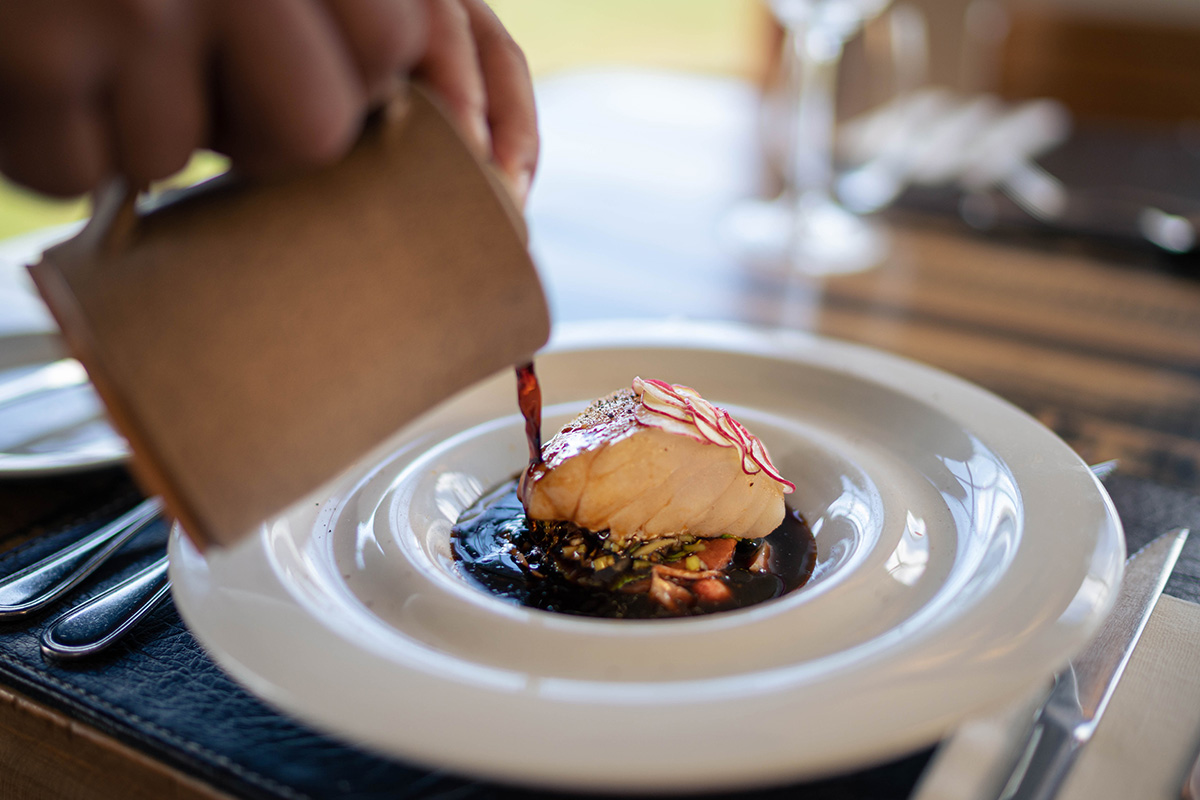Discover the sustainable recipe of Joaquín Pitta, Chef at Hotel Las Torres, where he blends a unique culinary experience with flavor, sustainability, and a passion for Patagonia. Pitta’s environmentally friendly philosophy ranges from organic waste management and using native ingredients in his cooking; his proposal reflects Patagonia’s cultural identity and biodiversity.
“We are becoming mindful.” With these words, Joaquín Pitta, Chef at Hotel Las Torres, describes his avant-garde approach to cuisine, understanding that cooking is not limited to the sensations it offers but also how to adapt a gastronomic line that is greener and kinder to the environment. “This recipe will be the key to the project’s future at Las Torres Patagonia,” said Pitta.
The chef is already planning his second season at Las Torres. He’s betting on a sustainable menu and using the various initiatives the reserve has been focusing on as inspiration, especially the cocktails at the bar.

The Recipe for Sustainability
For this new season, Pitta anticipates that one of his priorities will be product optimization, organic waste management, and research to minimize single-use plastic materials. “We cannot do this alone,” he comments, referring to the integral role that our organic garden and the operations department will have.
“We have the privilege of having an organic, bio-intensive, and regenerative garden, allowing us to produce our food each season. We also have livestock raised with the tradition and roots of Patagonia. All of this gives our kitchen products of character and identity”, Pitta affirms.

For optimizing and conserving supplies, strategies to separate the organic waste will be essential, opening up various possibilities and proposals. Non-reusable organic products, such as cooked meat, fat, and tendons, will be processed through the efforts of Las Torres’ operations department and used as feed for local pigs. While organic waste, such as peels, seeds, pulps, stems, and leaves, will be used with different reusable techniques that offer a circular approach. To mention a few, Pitta lists dehydration, pulverization, fermentation, pickles, and ripening to take advantage of the reused product’s virtues and seek new sensory stimuli.
A Kitchen with a Patagonian Identity
“We want to give the guest a feeling of identity through our interpretation of Chilean Patagonian cuisine, its products, and customs,” says the chef of Argentine origin with a Patagonian heart, who has been in the Las Torres kitchen since the 2022-2023 season.

At Cerro Negro, the Las Torres’ family ranch located between Punta Arenas and Puerto Natales, the chef affirms that guests can enjoy a menu of authentic Patagonian cuisine: classic Cordero al palo, sopaipillas, and pebre, all accompanied by a shearing sheep demonstration and an in-depth review of family’s history visiting the house-museum.
While in the Coirón Restaurant, visitors can experience the kitchen’s interpretation of the Patagnoian territory and classic, contemporary, and avant-garde offerings in a single menu. The chef says the restaurant’s menu is well provisioned by guanaco meat, hare, lamb, fish, shellfish from southern Chile, and products from the local organic garden.

Las Torres values and expresses Patagonian culture with preparations that reflect the culture and biodiversity through its cuisine. This approach looks for indigenous ingredients, environmentally friendly culinary practices, and responsible production methods. The objective is to offer dishes that are a true reflection of Patagonian’s cultural identity and, at the same time, preserve and value the region’s biological diversity.
If you want to know more about the sustainable cuisine that Las Torres Patagonia offers, come and discover the All-Inclusive experience.